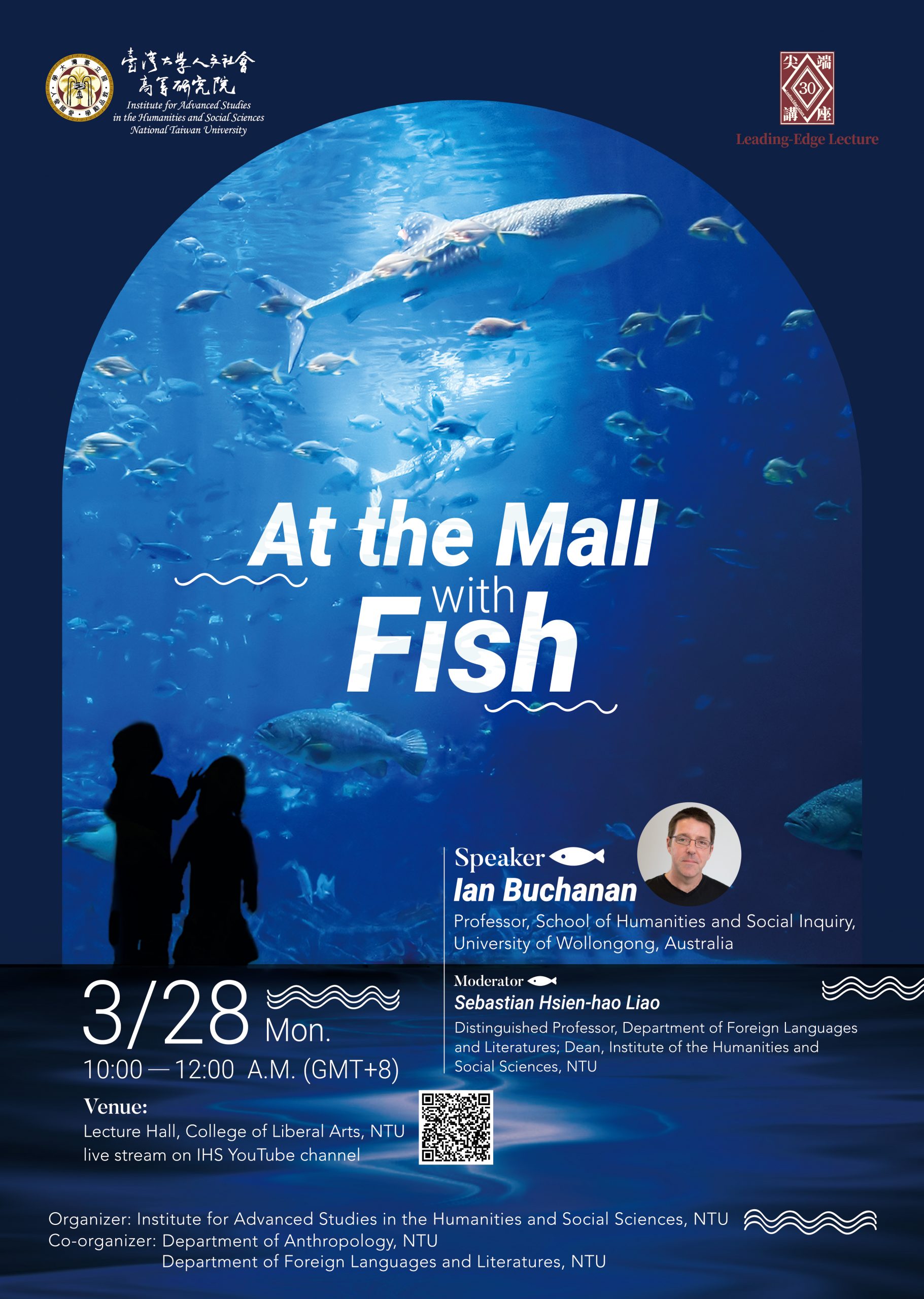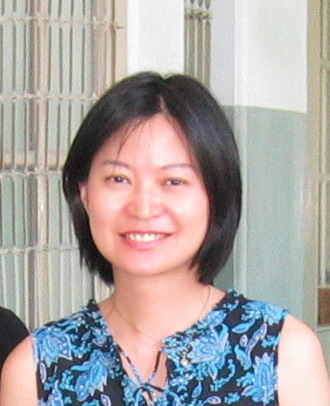【尖端講座系列】第三十場
主講人:Ian Buchanan(臥龍崗大學人文與社會科學學院教授)
講題:At the Mall with Fish
主持人:廖咸浩教授(國立臺灣大學外國語文學系特聘教授)
時間:3/28(一) 10:00-12:00
地點:臺大文學院演講廳(文學院一樓)+同步Youtube線上直播
主辦單位:國立臺灣大學人文社會高等研究院
合辦單位:國立臺灣大學外國語文學系
報名網址:https://forms.gle/xYUmkbutnEeERTcx5
【Leading-Edge Lecture 30】
Speaker: Ian Buchanan (Professor, School of Humanities and Social Inquiry, University of Wollongong, Australia)
講題:At the Mall with Fish
Moderator: Dean Sebastian Hsien-hao Liao (Distinguished Professor at Department of Foreign Languages and Literatures, Dean at IHS, NTU) Time: 3/28(Mon.) 10:00-12:00
Venue: Lecture Hall, College of Liberal Arts, NTU+ live stream on IHS YouTube channel
Organizer: Institute for Advanced Studies in the Humanities and Social Sciences, NTU
Co-organizer: Department of Foreign Languages and Literatures, NTU
Signup link: https://forms.gle/xYUmkbutnEeERTcx5
主講人speaker (截自https://scholars.uow.edu.au/display/ian_buchanan):
Ian Buchanan has published on a wide variety of subjects across a range of disciplines, including literary studies, cultural studies, communications studies and philosophy. He has published on film, literature, music, space, the internet and war as well a number of other subjects. He is the author of the Oxford Dictionary of Critical Theory and the founding editor of the international journal Deleuze Studies. He is also the editor of four book series: Deleuze Connections (EUP), Critical Connections, Plateaus (EUP) and Deleuze Encounters (Continuum).
摘要abstract:
It is my sense that most people only ever encounter actual living marine creatures at an aquarium. This obviously excludes snorkelers and SCUBA divers (they are, however, a very small percentage of the population), but even then none but the most avid divers would ever see anything like the variety of species and ecosystems that can be seen at an aquarium in the course of their lives. As such, it seems not unreasonable to speculate that aquariums could have the potential to catalyse new forms of relating and caring. In examining aquariums from a cultural studies perspective, I want to ask several interrelated questions at once. I want to know if seeing living aquatic creatures inspires feelings of attachment and care; I also want to know if these feelings differ from the feelings generated by seeing aquatic creatures on plate. Similarly, I want to know if seeing living aquatic creatures is more or less affecting when seen ‘in person, so to speak, as opposed to seeing them on a screen in David Attenborough or Jacques Cousteau documentary. Obviously enough I cannot hope to answer all these questions, so I will restrict myself to just one question: I want to know how aquariums ‘work’ (in Deleuze and Guattari’s sense of that word) as cultural institutions. Using language that could have been drawn from the work of Deleuze and Guattari (but wasn’t), Davis offers an answer to this question in her ground-breaking book Spectacular Nature that I find helpful as a starting point. She says the aquarium functions as “a kind of machine that structures vision in highly specific and thoughtfully determined ways.” Aquariums, she says, are in the ‘feelings’ business: they have to generate feelings of excitement and interest and they have to avoid “boredom, uneasiness, anxiety, disgust, and pity.” That is to say, nature isn’t intrinsically appealing – in the sense of compelling people to part with their money – all by itself, it needs to be framed in very particular ways to produce that interest.


